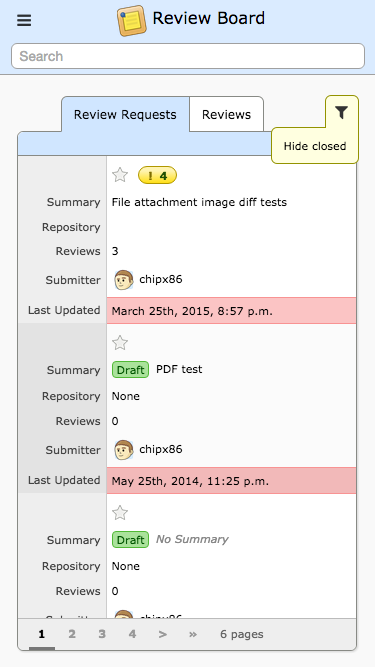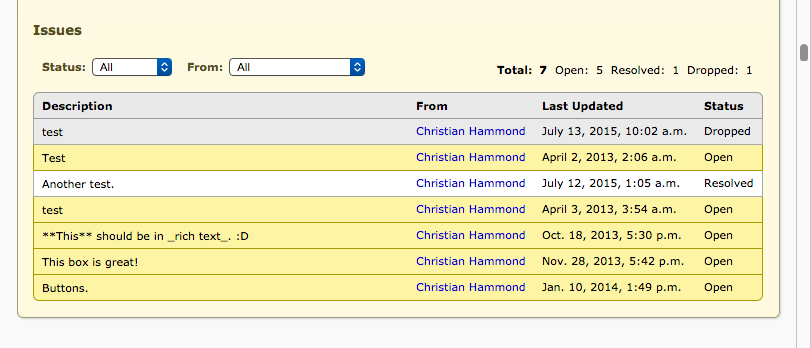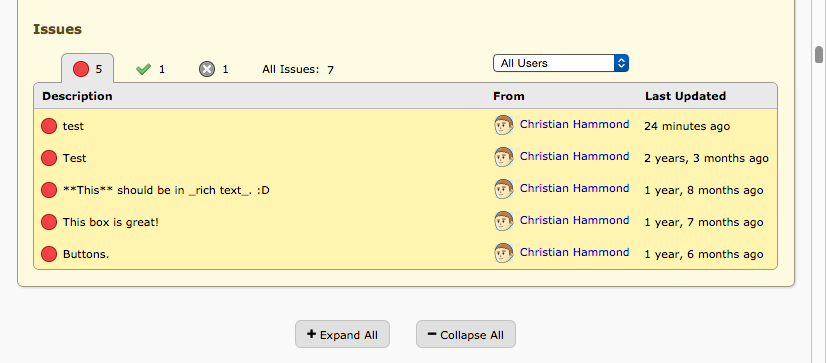2.5 beta 2 looks to be working pretty well, and we’re working hard to get ready for RC 1. As part of this, we’ve fixed up a number of little UI issues here and there. For instance, login on mobile now works:
As does registration and password resets.
Gravatars are now showing up more reliably in the dashboard. Depending on the settings on the server, these may have been hidden unintentionally. Basically, defaults weren’t being taken into consideration in some calls.
The user page now works properly on mobile, with filters moving to a little menu:
Also, some fixes for visual issues with text and Markdown file attachment review pages.






